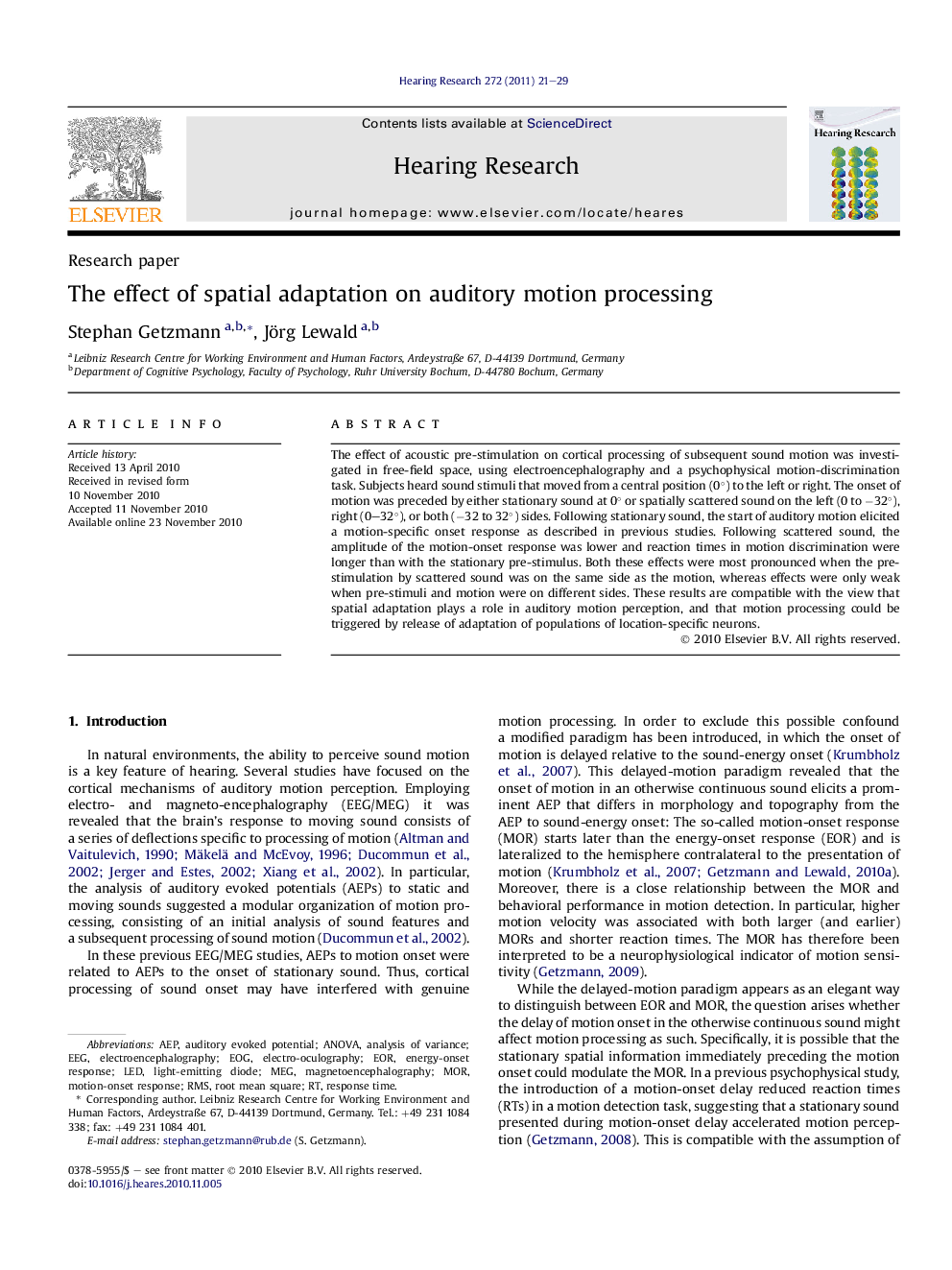| کد مقاله | کد نشریه | سال انتشار | مقاله انگلیسی | نسخه تمام متن |
|---|---|---|---|---|
| 4355548 | 1615628 | 2011 | 9 صفحه PDF | دانلود رایگان |

The effect of acoustic pre-stimulation on cortical processing of subsequent sound motion was investigated in free-field space, using electroencephalography and a psychophysical motion-discrimination task. Subjects heard sound stimuli that moved from a central position (0°) to the left or right. The onset of motion was preceded by either stationary sound at 0° or spatially scattered sound on the left (0 to −32°), right (0–32°), or both (−32 to 32°) sides. Following stationary sound, the start of auditory motion elicited a motion-specific onset response as described in previous studies. Following scattered sound, the amplitude of the motion-onset response was lower and reaction times in motion discrimination were longer than with the stationary pre-stimulus. Both these effects were most pronounced when the pre-stimulation by scattered sound was on the same side as the motion, whereas effects were only weak when pre-stimuli and motion were on different sides. These results are compatible with the view that spatial adaptation plays a role in auditory motion perception, and that motion processing could be triggered by release of adaptation of populations of location-specific neurons.
Research highlights
► Onset of sound motion elicits a motion-specific auditory-evoked potential.
► The motion-onset response (MOR) is most pronounced after stationary sound.
► MOR is reduced and motion perception is impaired following spatially scattered sound.
► Location-specific adaptation plays a role in auditory motion perception.
Journal: Hearing Research - Volume 272, Issues 1–2, February 2011, Pages 21–29